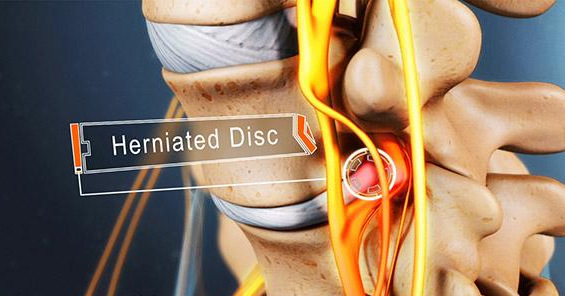A cuppa a day keeps the doctor away
Coffee and tea are both staple beverages all over the world — loved by many and often used to kickstart one’s day or tide them through an afternoon lull. Not only do these drinks taste good, but recent studies have shown that, when taken in moderation, coffee and tea can help protect certain organs and benefit overall health. Coffee or tea; what’s better for heart health? Read on to find out more about how these popular drinks could improve our cardiovascular health.

Coffee
Three research abstracts were compiled and released in March 2022, detailing how consuming 2-3 cups of coffee per day has been demonstrated to lower the chance of developing heart disease by 10% to 15%. The risk of dying from cardiovascular illnesses or having a stroke was lowest among people who drank about one cup per day. Additionally, it has been noticed that coffee includes substances that can inhibit receptors that can lead to irregular cardiac rhythms and oxidative stress, as well as reducing inflammation and the absorption of fat.
One of the studies examined the connection between various coffee varieties and the various health benefits they gave. The research revealed that the health effects of drinking instant coffee, ground coffee, or decaffeinated types were all quite similar.Additionally, one study revealed that those with pre-existing arrhythmia or any other form of heart illness who regularly drank coffee (particularly 1 cup per day) had a lower risk of dying before their time.
Why is coffee beneficial for heart health?
Riboflavin (vitamin B2), niacin (vitamin B3), and pantothenic acid (vitamin B5) all help stabilize blood sugar levels and prevent heart disease, respectively.
LDL levels—also referred to as "bad cholesterol"—which are linked to the onset of coronary artery disease (CAD) are reduced by caffeine.
Magnesium is necessary for the movement of other electrolytes (such as calcium and potassium) into cells, which helps to maintain a healthy heart rhythm. These electrolytes influence nerve signals and guarantee that muscles contract normally during a heartbeat.
polyphenols, an antioxidant. Included in this is chlorogenic acid, which has been demonstrated to lower blood sugar levels. This lowers your risk of developing Type 2 Diabetes and, in consequence, CAD.
Tea
Another well-liked beverage is tea, which is especially popular with people who want to avoid the jittery effects of coffee. This is due to tea's reduced caffeine content.
The European Society of Cardiology's Journal of Preventive Cardiology published a study in 2009 that demonstrated that tea drinkers live longer and that those who drank tea at least three times per week lived longer and healthier lives because tea consumption lowers the risk of cardiovascular diseases and all-cause mortality. The effects were strongest in those who drank black and green tea.
It was also demonstrated in a 2018 study published in the Journal of the American Heart Association that tea can reduce the natural decline in high-density lipoproteins (HDL), or "good" As we age, our bodies naturally produce more healthy cholesterol. In order to reduce the risk of heart disease and stroke, it is advantageous to slow down the age-related decline of HDL. Although both varieties of tea include similar substances such polyphenols and catechins, antioxidants known for their anti-inflammatory qualities, green tea in particular has a larger effect than black tea.
Green tea
Green tea has the highest catechin content of any type of tea. Because of their anti-inflammatory properties, these antioxidants aid in the prevention of atherosclerosis. Additionally, these catechins reduce LDL and cholesterol levels.
Green tea's EGCG also speeds up metabolism, making it simpler to reach and keep a healthy weight.
Black Tea
Black Tea Black tea has been demonstrated to have antioxidants that reduce inflammation and protect against oxidative stress, as well as lower triglycerides and blood sugar levels.
There may be additional teas with heart-healthy advantages. White tea, for instance, also contains flavanoids that aid in blood thinning, blood pressure reduction, and the reduction of bad cholesterol. Contrarily, chamomile tea aids individuals who have trouble falling asleep and has excellent restorative cardiac health benefits.
Summary
In the end, drinking one or two cups of tea or coffee every day would be good for your heart. Both have advantages like decreasing inflammation and raising one's lipid profile. Regardless of the various health advantages, ultimately it comes down to personal preference and taste.
It is also crucial to keep in mind that sugar and creamer additives can lessen the overall health advantages of coffee and tea. These are extra calories that are added to the beverage, which can lead to weight gain and generally make our beverages more unhealthy owing to an excess of sugar and fat. As a result, while trying to maximize the health benefits of drinking coffee and tea, In order to maximize any potential health benefits, we need also be aware of the need to decrease the additives we add to our beverages.
Having said that, it's crucial to pay attention to your body. Don't dismiss heart palpitations as "just a coffee/tea effect." Please visit a cardiologist if you encounter such symptoms. It's also crucial to remember that, like with anything we eat and drink, we should consume these items in moderation and not sacrifice other healthy habits like regular exercise, eating a balanced diet, cutting back on alcohol, and quitting smoking. Regular health check-ups and monitoring are essential for ensuring that diseases are caught early and that we avoid long-term consequences and poorer health outcomes.
What's Your Reaction?
























































































